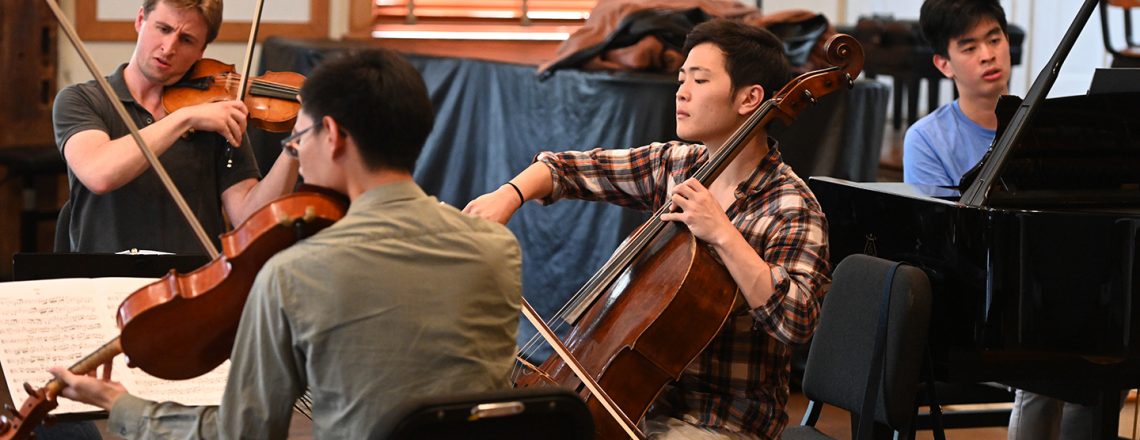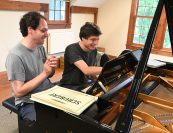Classical music will survive only if and because it is played with the same depth and relevance as at the moment it was written. In fact, I often object to the term “classical,” because there is nothing antiquated about the music we play. It is still and always will be music that conveys deep human emotion. I find it hopeful and comforting to know that a Beethoven quartet or Schubert trio will always take the same amount of time to unfold, despite the ever-faster pace of modern life. This will become more and more necessary in people’s lives, and it is our job to present it in this way.
It is invaluable, especially as the pace of life seems to be endlessly accelerating, to be able to return day after day and week after week to the same music and to have the time to discover what’s in a score and how to bring it out as simply and as honestly as possible. It’s important that musicians not get caught up in superficial advertising, short soundbites, and flashy attention-grabbing.
We seem to be living in a world where disagreement is often followed immediately by a lack of listening and a hardening of differences. Rehearsing a piece of music over a long period of time requires just the opposite approach. It is important, first of all, to come with strong ideas and convictions from the score, but then to be able to listen to someone else’s equally strong but differing opinion and fully embrace it as an option, together in service of the music.



